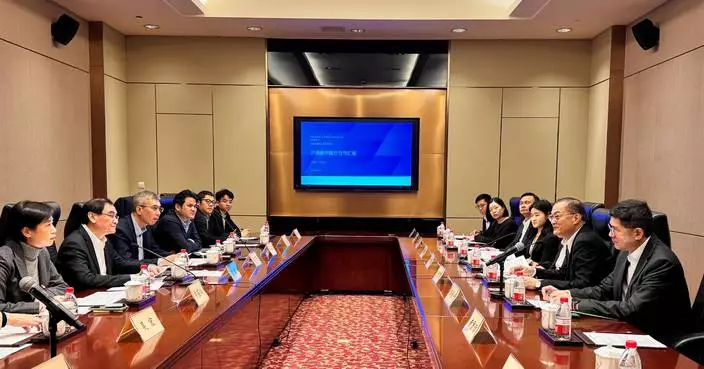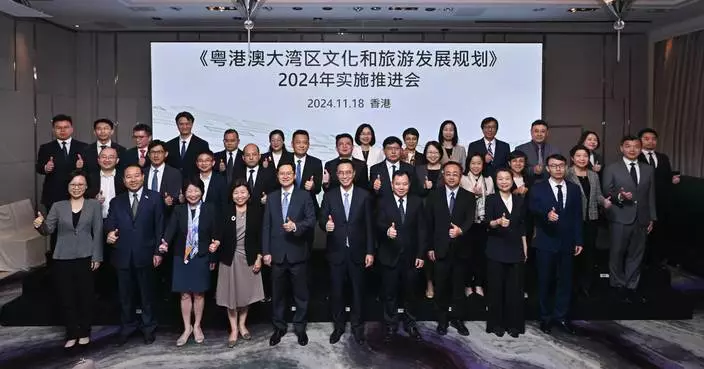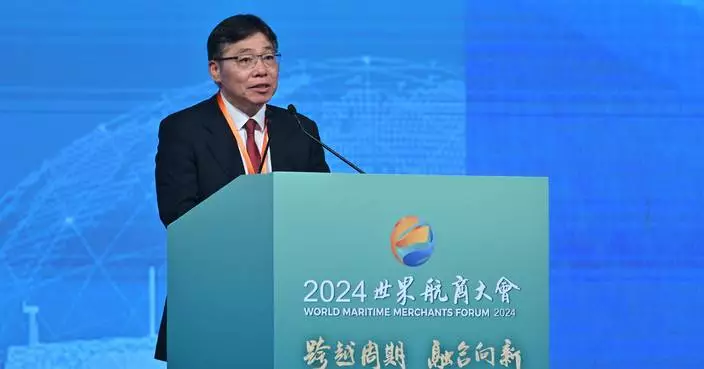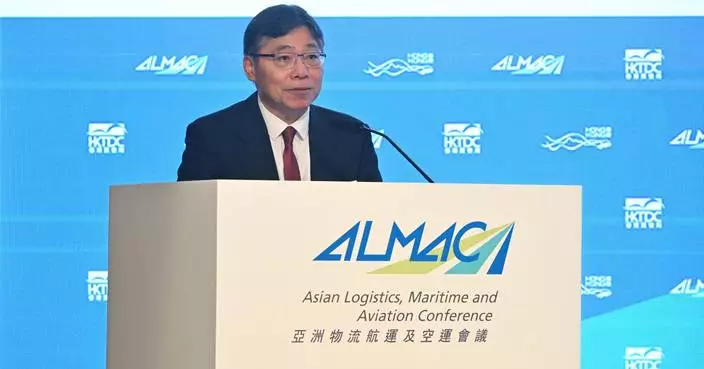Update on cases of Legionnaires' disease
The Centre for Health Protection (CHP) of the Department of Health today (November 18) reported the latest number of cases of Legionnaires' disease (LD), and stressed the importance of using and maintaining properly designed man-made water systems, adding that susceptible groups should strictly observe relevant precautions.
From November 10 to 16, the CHP recorded two community-acquired LD cases:
A male patient, aged 76 with underlying illnesses, who lives in Southern District; and
A male patient, aged 74 with underlying illnesses, who lives in Yuen Long District.
"Epidemiological investigations are ongoing to identify potential sources of infection, high-risk exposure and clusters, if any," a spokesman for the CHP said.
As of November 16, 110 LD cases had been recorded this year. In 2023 and 2022, there were 121 and 80 cases respectively.
"Men, people aged over 50, smokers, alcoholics and persons with weakened immunity are more susceptible to LD. Some situations may also increase the risk of infection, including poor maintenance of water systems; living in areas with old water systems, cooling towers or fountains; using electric water heaters, whirlpools and spas or hot water spring spas; and recent stays in hotels or vessels," the spokesman said.
Legionellae are found in various environmental settings and grow well in warm water (20 to 45 degrees Celsius). They can be found in aqueous environments such as water tanks, hot and cold water systems, cooling towers, whirlpools and spas, water fountains and home apparatus that support breathing. People may become infected when they breathe in contaminated droplets (aerosols) and mist generated by artificial water systems, or when handling garden soil, compost and potting mixes.
Immunocompromised persons should:
Use sterile or boiled water for drinking, tooth brushing and mouth rinsing;
Avoid using humidifiers, or other mist- or aerosol-generating devices; and
If using humidifiers, or other mist- or aerosol-generating devices, fill the water tank with only sterile or cooled freshly boiled water, and not water directly from the tap. Also, clean and maintain humidifiers/devices regularly according to manufacturers' instructions. Never leave stagnant water in a humidifier/device. Empty the water tank, wipe all surfaces dry, and change the water daily.
The public should observe the health advice below:
Observe personal hygiene;
Do not smoke and avoid alcohol consumption;
Strainers in water taps and shower heads should be inspected, cleaned, descaled and disinfected regularly or at a frequency recommended by the manufacturer;
If a fresh-water plumbing system is properly maintained, it is not necessary to install domestic water filters. Use of water filters is not encouraged as clogging occurs easily, which can promote growth of micro-organisms. In case water filters are used, the pore size should be 0.2 micrometres (µm) and the filter needs to be changed periodically according to the manufacturer's recommendations;
Drain and clean water tanks of buildings at least quarterly;
Drain or purge for at least one minute infrequently used water outlets (e.g. water taps, shower heads and hot water outlets) and stagnant points of the pipework weekly or before use;
Seek and follow doctors' professional advice regarding the use and maintenance of home respiratory devices and use only sterile water (not distilled or tap water) to clean and fill the reservoir. Clean and maintain the device regularly according to the manufacturer's instructions. After cleaning/disinfection, rinse the device with sterile water, cooled freshly boiled water or water filtered with 0.2 µm filters. Never leave stagnant water in the device. Empty the water tank, keep all surfaces dry, and change the water daily; and
When handling garden soil, compost and potting mixes:
Wear gloves and a face mask;
Water gardens and compost gently using low pressure;
Open composted potting mixes slowly and make sure the opening is directed away from the face;
Wet the soil to reduce dust when potting plants; and
Avoid working in poorly ventilated places such as enclosed greenhouses.
The public may visit the CHP'sLD page, theCode of Practice for Prevention of LDand theHousekeeping Guidelines for Cold and Hot Water Systems for Building Managementof the Prevention of LD Committee, and the CHP'srisk-based strategyfor prevention and control of LD.
Speech by Acting CE at Asian Logistics, Maritime and Aviation Conference 2024
Following is the speech by the Acting Chief Executive, Mr Chan Kwok-ki, at the Asian Logistics, Maritime and Aviation Conference 2024 today (November 18):
Vice Minister Fu Xuyin (Vice Minister of Transport), Dr Peter Lam (Chairman of the Hong Kong Trade Development Council), distinguished guests from around the world,ladies and gentlemen,
Good afternoon. I am pleased to welcome you to the 14th Asian Logistics, Maritime and Aviation Conference - the largest supply-chain management conference in Asia. And I am delighted to note that this year's two-day global gathering is expected to attract some 2 000 professionals from more than 30 countries and regions.
Hong Kong has long been a key player in the global logistics chain. And we are determined to build on our logistics heritage.
Thanks to the National 14th Five-Year Plan, Hong Kong has the country's full support to develop as an international shipping and aviation centre - and, no less important, to boost our global standing as a financial and trade hub.
Hong Kong's aviation strength is built on our world-class infrastructure, extensive air network and excellent connectivity within the Greater Bay Area. Indeed, Hong Kong International Airport is connected to nearly 200 destinations worldwide and has topped the world for air cargo throughput in nine of the past 10 years. It helps, too, that about half the world's population is within five hours' flight time of Hong Kong.
This year, I am delighted to say, Hong Kong International Airport enters the era of the Three-runway System, which is set for commissioning in about 10 days. It will be a game changer. By 2035, the airport will be able to handle up to 120 million passengers and 10 million tonnes of cargo a year.
More good news. Internationally recognised logistics companies are turning to Hong Kong International Airport for their future. United Parcel Service will develop a new hub facility at the airport. That follows last year's launch of DHL's expanded Central Asia Hub and the Cainiao Smart Gateway.
These and other developments will also enhance our cargo connectivity with the Greater Bay Area, boosting our status as an air cargo transshipment centre.
And we will continue to expand our air network, strengthening co-operation with civil aviation partners and supporting airlines to elevate their services on major routes and to explore new destinations, particularly in Belt and Road countries.
This week, of course, is Maritime Week. And we have plenty to celebrate, thanks to Hong Kong Port and our superb connectivity with ports around the world.
The Hong Kong Shipping Registry, let me add, is the fourth largest in the world in gross tonnage.
Hong Kong boasts a dynamic maritime services cluster, counting more than 1 100 companies and providing solid support for the industry. And we are committed to expanding our high-end maritime service offerings, as last month's Policy Address underlined.
Hong Kong ranked fourth in this year's International Shipping Centre Development Index, a testament to our strengths as an international maritime centre.
And we see long-term opportunities in Hong Kong's rise as a green and smart port. Our Action Plan on Maritime and Port Development Strategy outlines that promising future, including building green fuel-bunkering capabilities. Just three days ago, we published an action plan on developing Hong Kong into a green maritime fuel-bunkering centre.
A port community system will be up and running next year, enabling the flow and sharing of data within the industry.
Combining our aviation and maritime strengths, Hong Kong has long been a major cargo gateway to and from the Greater Bay Area.
And the Government is committed to sustaining Hong Kong's standing as a regional logistics hub. The Action Plan on Modern Logistics Development published in October 2023 will guide our way, helping the industry capitalise on the far-reaching opportunities made possible by e-commerce and smart and green logistics.
The Government will encourage transshipment, extending arrangements under the Air Transhipment Cargo Exemption Scheme to other cargo-transshipment options. That will enlarge our cargo catchment area, increasing cargo throughput and boosting our competitiveness as a transshipment hub.
We will also step up efforts to develop Hong Kong into a cross-boundary, e-commerce logistics and distribution centre.
Ladies and gentlemen, this year's Asian Logistics, Maritime and Aviation Conference is all about creating a resilient and sustainable future for global supply chains. And Hong Kong is determined to play a vital part in that promising future.
My thanks to the Hong Kong Trade Development Council for organising this year's conference with us. I am grateful, too, for the support of our partners and sponsors in making this year's conference a resounding success.
I wish you all a rewarding and enjoyable stay here in Hong Kong, and the best in business and logistics in the coming year.
Thank you.







